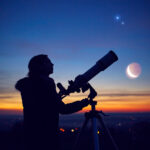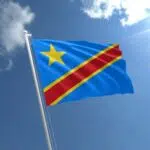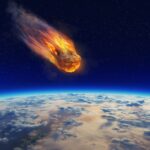Celebrate National Meteor Watch Day on June 30 by finding out as much as you can about the phenomenon and the impact it leaves on Earth. For starters, let’s look at what meteors are. Have you ever seen movies where the actors are busy searching for shooting stars in the sky? Well, that’s just a fancy name for a meteorite! These ‘shooting’ or ‘falling’ stars come from the solar system and are actually broken fragments of asteroids. Fun fact — these fragments can take millions of years before they hit Earth. To find out more about the day, do a quick google search OR simply continue reading!
History of National Meteor Watch Day
Meteors are also known as ‘space rocks’ since they fall on Earth from space. However, when these rocks enter our atmosphere, they are quite noticeable since they leave a glowing streak in the sky. Meteors were also defined as “solid objects moving in interplanetary space” in 1961 by the International Astronomical Union.
Meteors have existed since time immemorial — it just took scientists time to discover their existence. Meteors gained a lot of traction in the 19th century and became the study of many astronomers such as Dennis Olmsted who began analyzing meteor showers in order to understand their origins. In 1866, scientists like Hubert A. Newton began to make predictions regarding the next meteor shower. Studying meteors is also essential to determine the solar system’s history.
Another fact about meteors that had people intrigued was that they vary in size and weight. Some are huge and weigh over 60 tons, while others are as small as pebbles that we can hold in our hands. The largest meteorite to hit our planet was found in 1920 in Namibia. The space rock was nine feet across, weighed 60 tons, and was made out of an alloy of iron and nickel. But this isn’t all, some meteors also fall to Earth with a dramatic entry that often causes destruction and death. These meteors are known as fireballs. Finally, the craters we see on the moon were caused by meteors!
National Meteor Watch Day timeline
Professor Benjamin Silliman investigates a meteorite that fell in Connecticut.
A meteor storm of thousands of meteors occurs across the eastern U.S.
An eight-point meteorite falls on Ann Hodges’ house in Alabama and injures her.
A fireball hits Russia and injures 1,600 people.
National Meteor Watch Day FAQs
How do people celebrate Meteor Day?
For many, the day is dedicated to stargazing and the search for meteors.
Does anyone see a meteor during the day?
Bright meteors may be seen in broad daylight, but mostly they are only spotted at night.
What does it mean when you see a meteor?
Meteor sightings are often seen as holding spiritual significance and as a sign.
How to Celebrate National Meteor Watch Day
Go stargazing
Grab a blanket and some snacks, pick a spot under the stars, and get ready for a night of stargazing. To make the activity more fun, invite a couple of your friends.
Head to the library
Intrigued by meteors? Dedicate the day to finding out more about them by heading to the library or taking to Google. Post about your findings on social media.
Visit a space museum
Space museums often have pieces of meteor rocks on display. What better way to celebrate National Meteor Watch Day than by looking at an actual meteor up close?
5 Fun Facts About Meteors You Need To Know
Bright meteors
The meteors that are brighter than usual are called fireballs.
Greek origins
The Greek word for ‘meteor’ means ‘suspended in air.’
The extinction of dinosaurs
The extinction of dinosaurs was caused by an eight-mile-long meteor.
A mass of falling meteoric material
According to NASA’s estimations, 48.5 tons of meteoritic material falls on Earth daily.
Old rocks
Meteors consist of the solar system’s oldest rocks.
It develops an interest in astronomy
It develops an interest in astronomy
For many youngsters, this day serves the purposes of developing interest in astronomy and the study of stars and meteors.
It spreads education
Days such as these make people curious and often become the building blocks for a career in which the topic of space is studied in depth.
It celebrates the wonders of nature
There are so many things in our universe that we are unaware of so dedicating special days to these wonders gives everyone a chance to realize how beautiful the world is and why we must take care of it.
National Meteor Watch Day dates
| Year | Date | Day |
|---|---|---|
| 2025 | June 30 | Monday |
| 2026 | June 30 | Tuesday |
| 2027 | June 30 | Wednesday |
| 2028 | June 30 | Friday |
| 2029 | June 30 | Saturday |















